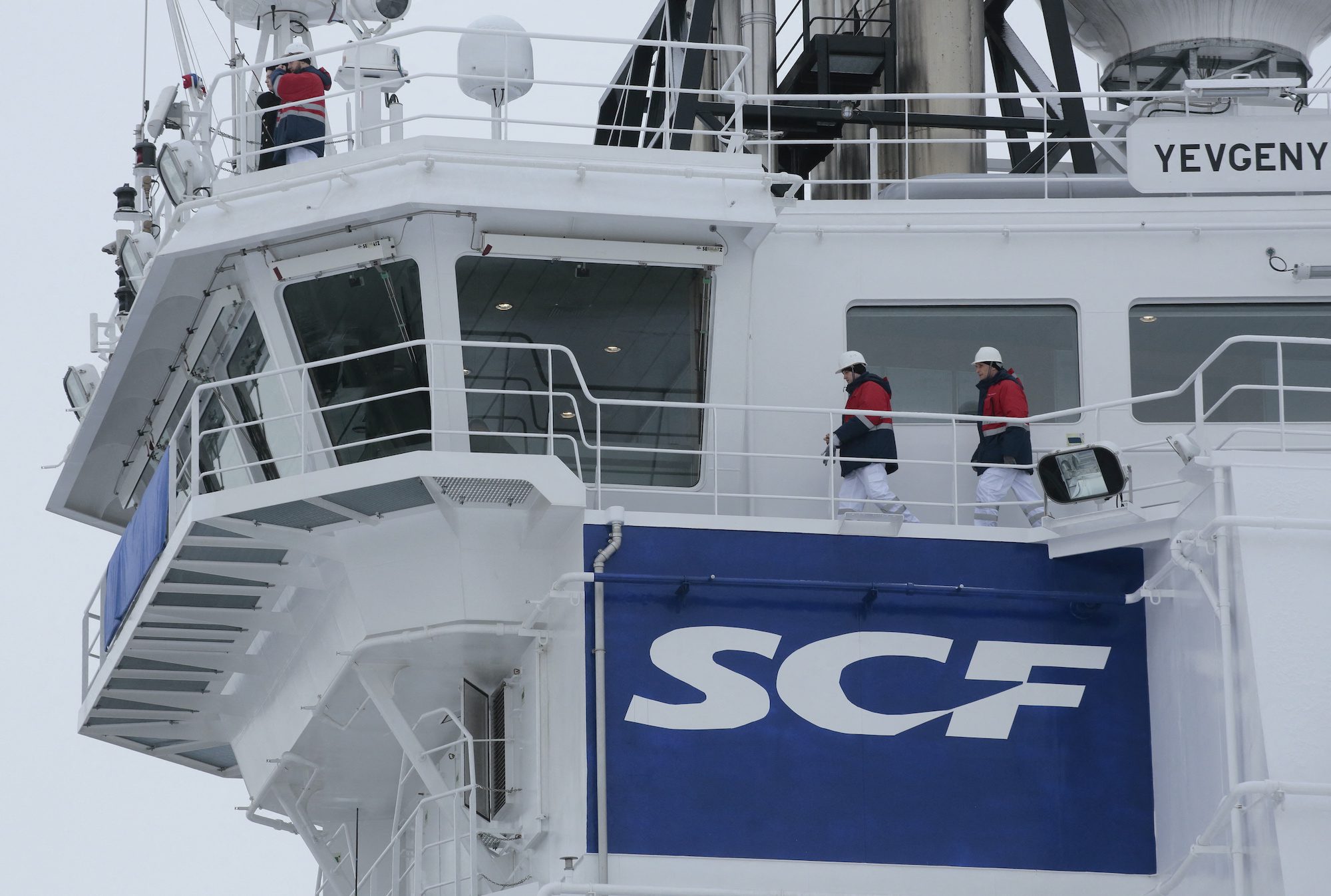
The logo of Russian state shipping company Sovcomflot is seen on the multifunctional icebreaking standby vessel “Yevgeny Primakov” moored in central St. Petersburg, Russia February 3, 2018. REUTERS/Anton Vaganov/File Photo
Will Russia’s Tanker Fleet Come To A Halt?
Russia’s large fleet of European tankers is starting to stall. Will they shift to the Pacific, where Russian flagged ships don’t appear to be suffering the same difficulties as those in European waters?
By Julian Lee (Bloomberg) Russia’s giant fleet of ocean-going oil tankers is starting to come to a standstill.
Nine Aframax vessels owned by Sovcomflot PJSC have been idling at sea for more than a week after discharging cargoes, according to ship-tracking data monitored by Bloomberg. That’s more than a quarter of the company’s such tankers observed operating around the coasts of Europe and North America.
Sovcomflot is majority owned by the Russian government, which holds 83% of the company’s shares, data compiled by Bloomberg show. The 10-person Board of Directors includes several deputy ministers of the Russian Federation, according to its website.
The company didn’t respond to a request for comment.
Also Read: Frontline $FRO Orders Tanker To Load Toxic Russian Cargo Near War Zone by John Konrad
Sovcomflot’s fleet isn’t subject to measures that would prevent it from trading, but countries including the U.K. and Canada aren’t allowing Russian ships to dock following Russia’s invasion of Ukraine. There’s also been a wariness among tanker companies about touching the country’s petroleum, while the U.S. and U.K. have announced plans to stop taking supplies from Russia.
Aframax tankers can serve most of the world’s oil ports and are commonly used for short-haul and medium-range crude shipments, as well as for deliveries of refined products. The mid-sized vessels are widely used in the Mediterranean, the North Sea, the Black Sea and the Baltic.
Also Read: Rotterdam says Barring Russian Ships is ‘Not On Table’ for Now
After discharging their cargoes, the ships would normally head off to pick up the next one, perhaps idling for a day or two awaiting orders. The problems for Sovcomflot may get worse, with another four tankers seen idling for less than a week after offloading at European ports.
No Problems in Pacific
The entire Sovcomflot tanker fleet totals about 110 tankers, according to data from Clarksons Research Services Ltd., a unit of the world’s largest shipbroker. Those vessels range from small ships that carry oil products, all the way up to giant vessels that can haul more than 2 million barrels of crude, ship-tracking data show.
The company has 52 Aframaxes, making it the largest owner of such vessels in the world, according to Clarksons. About a third of those ships are observed operating in the Pacific Ocean, where they don’t appear to be suffering the same difficulties as those in European waters. Roughly half of those Pacific ships are used as shuttle tankers for oil projects off Sakhalin Island, and they have a steady stream of cargoes, mostly heading to China.
By Julian Lee with assistance from Alex Longley.© 2022 Bloomberg L.P.



Comments are closed.